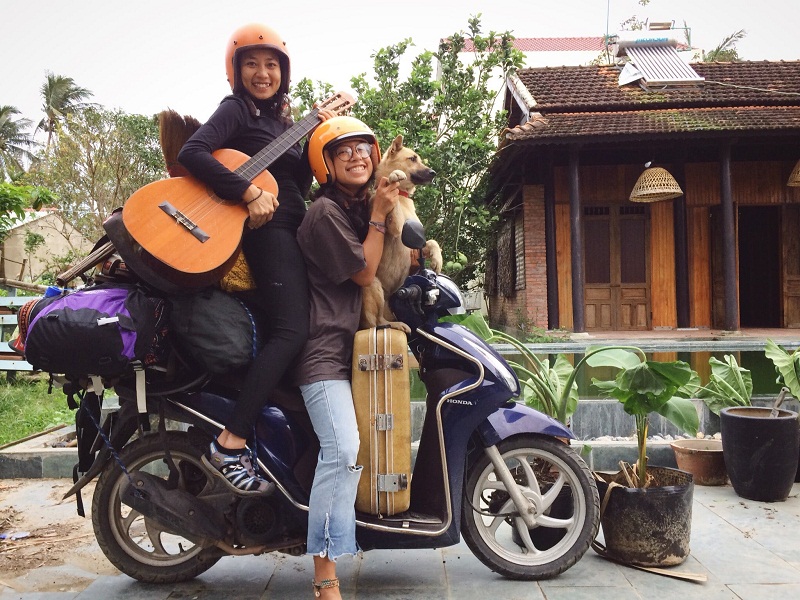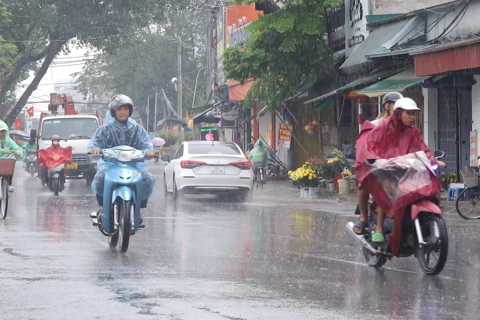Hoi An - the first-ever city of Vietnam says no to dog and cat meat
Other cities are expected to commit to not consuming cats and dogs as a source of food in the future.
Hoi An, the ancient town of the central province of Quang Nam, has become the first-ever dog and cat meat-free tourist-friendly city in Vietnam.
This move came after the local authorities signed a Memorandum of Understanding with Four Paws International this month, pledging not to consume dog and cat meat from now on.
Good news for dog and cat lovers
| Dogs are considered a source of food in Vietnam, but no more in Hoi An from the end of 2021. Photo: Four Paws Viet |
This is the first time in Vietnam that a city takes such an action to end the dog and cat meat trade. The two-year agreement will begin in late 2021. Under the historic agreement, dog and cat meat would be phased out from the famous tourist city in the country’s central region.
Four Paws International, a global animal welfare organization, stressed that the agreement with Hoi An would improve companion animal welfare through rabies vaccination and sterilization programs and help with preventing zoonotic pandemics.
According to Director of Companion Animals for Four Paws Julie Sanders, every year in Vietnam, more than five million dogs and a million cats are trafficked and slaughtered for their meat, jeopardizing animal welfare and public health.
“This is a pivotal and watershed moment in Vietnam and in the region. Hoi An is now an example for other towns and cities across Vietnam to follow suit,” she said.
Vice Chairman of Hoi An City People’s Committee Nguyen The Hung said that animal welfare is important to both international and local tourists, especially as companion animals are becoming increasingly seen as family members in Vietnam.
“As a popular tourist destination, we want to help promote animal welfare through rabies eradication, phasing out the dog and cat meat trade, and making the city a premier destination for tourism,” he stated.
About 75% of new infectious diseases have a zoonotic origin. The Four Paws has been working closely with government agencies across Asia advocating for a ban on dog and cat meat, due to the extreme animal cruelty involved and public health risk, largely due to rabies and the spread of zoonotic diseases. The recent developments are seen as a crucial turning point for animal welfare in the region.
Despite the rampant trade in dogs and cats for meat in Vietnam, market research done by Four Paws has demonstrated that only 6.3% of Vietnamese consume dog or cat meat, and 88% of the public supported a ban on the sale of both dog and cat meat by the government.
Positive feedback
Hoi An’s decision has received a positive response not only from locals but also from the expat community in Vietnam and foreign tourists.
Discova, a business specialized in travel across the Southeast region, welcomed the major agreement which they believe will only be of benefit to not only Hoi An but Vietnam’s tourism and trade.
“Our company strives to ensure both people and animals in the destinations we visit are protected from harm, which is the essence of the MoU being signed,” said a representative of Discova.
| Dogs are close and loyal friends of people. Photo: LoongBoong Homestay Hoi An |
Living and working in Vietnam for over five years, John said that he loves Vietnamese cuisine, especially Hanoi’s street food. The young man, however, always feels appalling and ‘uncomfortable’ whenever he saw dog meat is displayed and sold as food in local markets.“It’s great to know that Hoi An is committed to not consuming dog and cat meat. I will definitely come back to Hoi An again to admire this beautiful ancient but civilized city”, John Noland, a Hanoi expat from Australia told The Hanoi Times.
“I understand that humans eat animals to survive. But dogs are so special. They are close and loyal friends of people. I completely disagree with some who think that ‘eating dog meat is a cultural trait in some Asian countries,” he stated.
John showed his excitement when hearing that Hoi An will be the first-ever city in Vietnam to ban dog and cat meat. “It’s such a piece of good news. I have heard that Hoi An is very beautiful and peaceful. By learning about the news, I feel even more excited and wish to visit Hoi An as soon as I can,” he shared.
Four Paws hopes that after Hoi An, more cities in Vietnam will sign a commitment with them not to consume cats and dogs as sources of food in the future.


.jpg)











